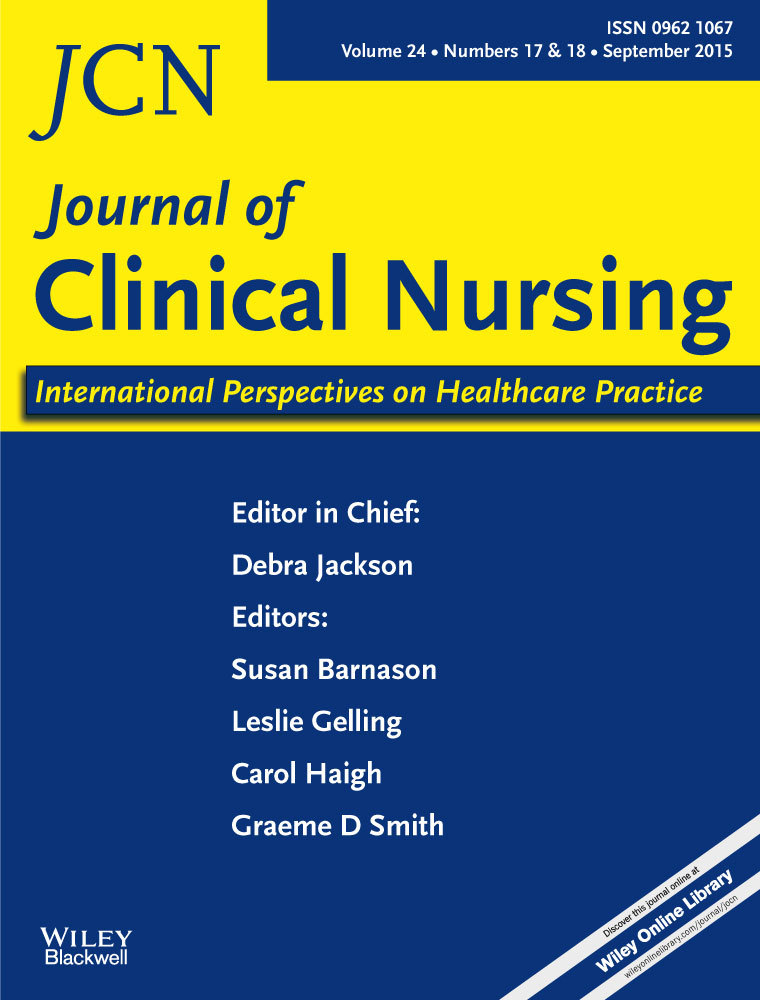Clinical usefulness of the definitions for defining characteristics of activity intolerance, excess fluid volume and decreased cardiac output in decompensated heart failure: a descriptive exploratory study
Abstract
Aims and objectives
To assess the clinical usefulness of the operational definitions for the defining characteristics of the NANDA International nursing diagnoses, activity intolerance, decreased cardiac output and excess fluid volume, and the concomitant presence of those diagnoses in patients with decompensated heart failure.
Background
Content validity of the operational definitions for the defining characteristics of activity intolerance, excess fluid volume and decreased cardiac output have been previously validated by experts. Their clinical usefulness requires clinical validation.
Design
This was a descriptive exploratory study.
Methods
Two expert nurses independently assessed 25 patients with decompensated heart failure for the presence or absence of 29 defining characteristics. Interrater reliability was analysed using the Kappa coefficient as a measure of clinical usefulness. The Fisher's exact test was used to test the association of the defining characteristics of activity intolerance and excess fluid volume in the presence of decreased cardiac output, and the correlation between the three diagnoses.
Results
Assessments regarding the presence of all defining characteristics reached 100% agreement, except with anxiety. Five defining characteristics of excess fluid volume were significantly associated with the presence of decreased cardiac output. Concomitant presence of the three diagnoses occurred in 80% of the patients. However, there was no significant correlation between the three diagnoses.
Conclusions
The operational definitions for the diagnoses had strong interrater reliability, therefore they were considered clinically useful. Only five defining characteristics were representative of the association between excess fluid volume and decreased cardiac output. Therefore, excess fluid volume is related to decreased cardiac output, although these diagnoses are not necessarily associated with activity intolerance.
Relevance to clinical practice
The operational definitions may favour early recognition of the sequence of responses to decompensation, guiding the choice of common interventions to improve or resolve excess fluid volume and decreased cardiac output.




